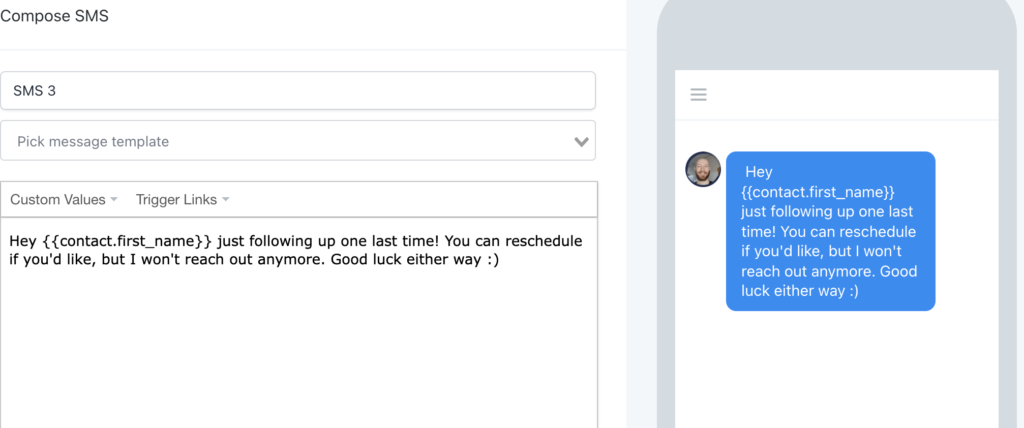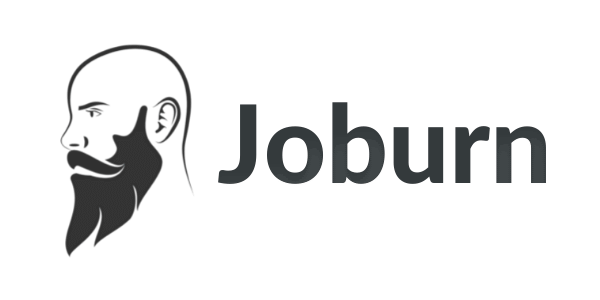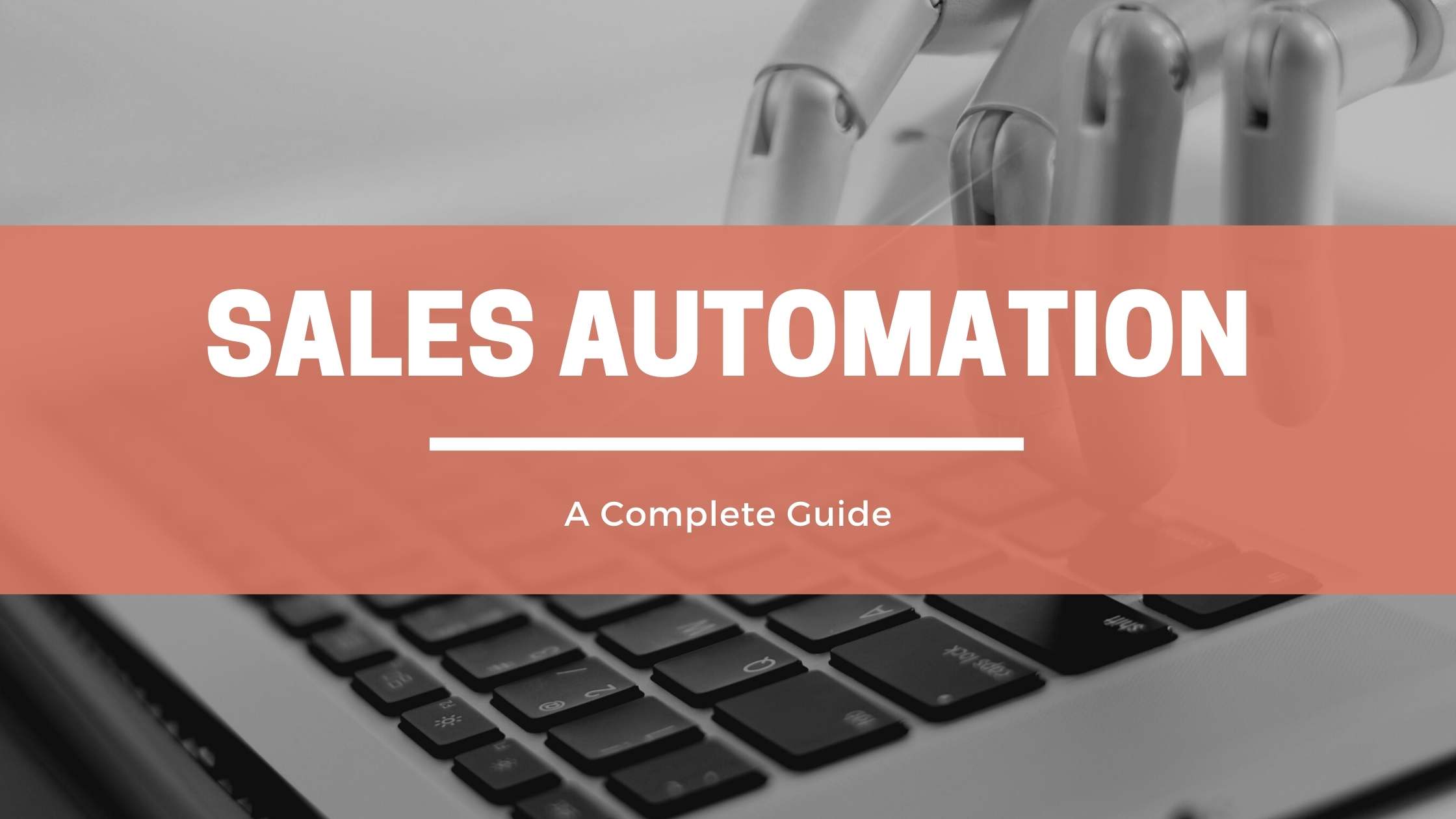What is sales automation?
Sales automation refers to the use of technology to automate and streamline various tasks and processes in the sales cycle, such as lead generation, customer relationship management, and forecasting. The goal of sales automation is to improve efficiency, increase productivity, and ultimately drive revenue growth. Examples of sales automation tools include customer relationship management (CRM) software, marketing automation software, and sales enablement software.
Sales automation really started becoming possible around 2006. Since then, the market has grown passed USD 7.3 billion dollars in value.
What is an example of sales automation?
An example of sales automation is using a customer relationship management (CRM) system to automate and streamline the process of managing customer interactions and data. A CRM system can be used to track leads, manage customer information, schedule and track sales activities, and forecast future sales. It can also integrate with other sales automation tools, such as marketing automation software, to provide a more comprehensive and efficient sales process. Additionally, it can be useful for sales team to access customer information and communicate with them quickly and efficiently.
An example of sales automation would be when a company automates follow-up texts or emails after a sales call.
More specifically, here’s what that might look like:
- A sales rep has a call with a new lead.
- The lead attends, and they have a good conversation.
- Normally, the sales rep would follow up their conversation with a text or email by manually writing and sending.
- In this case, however, software identifies that the call has ended and triggers the sales automation.
- The text would be a template with fields like, “{name} “automatically changing to the leads name.
Here’s what that would look like for a text:

Instead of {{contact.first_name}}, it would be replaced with the lead name your software has on file. There are many variations of the above that can be used with text, email, and other digital outreach.
Why is sales automation important?
Sales automation reduces the amount of time sales reps spend completing repetitive tasks. This opens up their time to work on high priority or valuable tasks. For example, sales reps often need to create new data entries for actions they take and the results of said action. If entering the data was automated, the sales person could focus on more important tasks.
What is the benefit of sales automation?
There are a number of benefits you can expect from using sales automation.
The benefits of sales automation include:
- Increased Efficiency: Sales automation tools can automate repetitive tasks, such as data entry and lead tracking, allowing sales teams to focus on more high-value activities, such as closing deals.
- Improved Productivity: By automating various tasks, sales teams can work more efficiently and effectively, resulting in increased productivity.
- Better Data Management: Sales automation tools, such as CRM systems, can help sales teams manage customer data and interactions more effectively, providing valuable insights into customer behavior and needs.
- Better Forecasting: By collecting and analyzing data on customer interactions and sales activities, sales automation tools can help sales teams make more accurate forecasts and better plan for future growth.
- Improved Collaboration: Sales automation tools can help sales teams collaborate and communicate more effectively, both internally and with customers.
- Cost Savings: Automation can reduce the cost of sales by reducing the need for manual labor, improving efficiency and reducing errors.
- Improved customer experience: Sales automation tools can help to automate many repetitive tasks in customer interactions, such as sending follow-up emails, this can free up sales team’s time to focus on more important and complex customer interactions.
- Better lead management: Sales automation tools can help to automate lead generation, qualification, and nurturing, this can help to identify and focus on the most promising leads and close more deals.
Overall, Sales Automation can help to improve the overall performance and productivity of the sales team by providing them with the tools they need to work more effectively and efficiently. It can also help to increase revenue and improve customer satisfaction by streamlining processes, automating tasks and providing better insights into customer behavior and needs.
What is sales process automation?
Sales process automation refers to the use of technology to automate and streamline various tasks and processes that are part of the sales cycle. This can include automating tasks such as lead generation, customer relationship management, forecasting, and sales reporting. The goal of sales process automation is to improve efficiency, increase productivity, and ultimately drive revenue growth.
Sales process automation can help to improve the overall performance and productivity of the sales team by providing them with the tools they need to work more effectively and efficiently, it can also help to increase revenue and improve customer satisfaction by streamlining processes, automating tasks and providing better insights into customer behavior and needs.
What is sales automation tool?
A sales automation tool is a software or platform that is designed to automate and streamline various tasks and processes that are part of the sales cycle. These tools can help to improve efficiency, increase productivity, and ultimately drive revenue growth.
Examples of sales automation tools include:
- Customer Relationship Management (CRM) software: This is a tool used to manage customer interactions, store customer data, and forecast future sales.
- Marketing Automation software: This is a tool that helps to automate and streamline various marketing tasks such as email campaigns, lead generation, and lead nurturing.
- Sales Enablement software: This is a tool that provides sales teams with the information and resources they need to close deals, such as product information, pricing, and case studies.
- Sales Pipeline Management software: This is a tool that helps to manage the sales pipeline, tracking leads as they move through different stages of the sales process
- Sales forecasting software: This tool helps to forecast future sales by analyzing data on customer interactions and sales activities.
- Email marketing tools: This tool helps to automate the process of sending targeted, personalized email campaigns to leads and customers. These can also use the power of AI to generate high quality email variations to choose from.
These tools can be used separately or integrated with one another to provide a more comprehensive and efficient sales process. Sales automation tools can be used by small and large businesses, and can be customized to meet the specific needs of different industries and sales teams.
What is sales automation software?
Sales automation software is a powerful tool for businesses looking to streamline their sales processes and drive revenue growth. By automating repetitive tasks such as data entry, lead tracking, and customer relationship management, it allows sales teams to focus on more high-value activities like closing deals. Not only that, it also provides valuable insights into customer behavior and needs through data analysis and forecasting, giving businesses a competitive edge in the market. Additionally, it can also improve collaboration, customer experience and lead management, thus creating a more efficient, productive and profitable sales process.
What is sales automation in CRM?
Sales automation in customer relationship management (CRM) software is where teams automate otherwise manual tasks. It’s a game-changer for businesses looking to streamline their sales processes and drive revenue growth. According to a study by Salesforce, businesses that use CRM and sales automation software see an average of 41% increase in sales productivity and 36% increase in sales quota achievement.
Not only that, but it also helps to improve customer satisfaction by automating repetitive tasks such as data entry and lead tracking, allowing sales teams to focus on more high-value activities like closing deals. With the use of CRM and sales automation, businesses can gain valuable insights into customer behavior and needs through data analysis and forecasting, giving them a distinct competitive edge in the market. Imagine the boost in productivity and revenue your business could see by implementing these tools.
A specific example: a salesperson moves a lead from one CRM pipeline stage to the next. The action triggers an automation to send a reminder, invite, contract, etc to the lead to keep the process moving. This saves the salesperson a ton of time.
How do you automate sales?
You can automate your sales in a number of ways. For example, if you’re selling a low-cost product or service, you could use a video sales letter or quiz. If you’re selling an expensive or complex service, you would not be able to fully automate the process. In this case, you can automate part of the process to save time and increase your conversion rates.
Here are the steps to automate your sales:
- Identify the tasks and processes that can be automated: Start by analyzing your current sales processes and identifying which tasks can be automated. Examples include lead generation, lead nurturing, customer data management, and sales forecasting.
- Choose the right automation software: There are many different types of sales automation software available, such as CRM, marketing automation, and sales enablement tools. Choose the software that best fits your business needs and budget.
- Set up and configure the software: Once you have chosen the software, set it up and configure it according to your business needs. This may include customizing the user interface, integrating with other systems, and setting up workflows and automations.
- Train your team: It is essential to train your team on how to use the software effectively. This will help them to take full advantage of the features and automations available.
- Monitor and measure performance: Regularly monitor and measure the performance of the automation software. This will help you to identify any issues and make adjustments as necessary to ensure that it is working effectively.
- Continuously improve: Continuously improve your sales automation by looking for ways to optimize the system and processes, including identifying new areas of automation, and keeping up with the latest trends and technologies.
- Keep your data up-to-date: Keep your data up-to-date, as it is essential for the system to function well and provide accurate insights.
By automating sales, you can reduce repetitive tasks, increase productivity, and make better use of your sales team’s time. It will also help you to gain valuable insights into customer behavior and needs, making it easier to forecast future sales and close more deals.
What is sales automation job?
A sales automation job refers to a role within an organization that is responsible for implementing and managing sales automation software and processes. These professionals work to automate various tasks and processes within the sales cycle such as lead generation, customer relationship management, forecasting, and sales reporting.
Pros of a sales automation job include:
- The ability to improve efficiency and increase productivity in the sales process.
- The opportunity to gain valuable insights into customer behavior and needs through data analysis and forecasting.
- The potential for increased revenue and improved customer satisfaction.
- The ability to work with cutting-edge technology and stay up-to-date with the latest trends in the field.
Cons of a sales automation job include:
- The need to have a deep understanding of the software and technology involved.
- The need to continuously monitor and measure the performance of the automation software.
- The requirement to work with cross-functional teams and to be able to communicate effectively with different departments.
- The need to keep up with the latest trends and technologies in the field.
Expected salary for a sales automation job can vary depending on the location, level of experience, and type of organization. According to Glassdoor, the average salary for a sales automation specialist is around $70,000 per year.
Overall, a sales automation job can be a challenging but rewarding career path for those who are interested in technology and have a passion for improving efficiency and driving revenue growth. It can be a great opportunity for someone looking to work with cutting-edge technology and stay up-to-date with the latest trends in the field. Additionally, it can also be a great step for someone looking to build a career in sales management, marketing or even in IT.
What is sales force automation?
Sales Force Automation (SFA) is a technology-enabled strategy that helps companies streamline and automate their sales processes, from lead generation to closing deals. By using SFA software, sales teams can manage leads, track customer interactions, and forecast future sales more efficiently. The result is a more productive, efficient, and data-driven sales process that can increase revenue and improve customer satisfaction. Imagine having all the information you need to close a deal at your fingertips, the ability to track your leads and sales pipeline in real-time, and the insights to forecast future sales with accuracy.
Which companies use sales force automation?
Sales Force Automation (SFA) is widely used by companies of all sizes and across various industries to streamline and automate their sales processes. From lead generation to closing deals, SFA helps businesses to manage leads, track customer interactions, and forecast future sales more efficiently. This can result in a more productive, efficient, and data-driven sales process, ultimately increasing revenue and improving customer satisfaction. Some of the well-known companies that use SFA include Salesforce, Oracle, SAP, Microsoft, and IBM. Additionally, small and medium-sized businesses (SMBs) also use SFA software to improve their sales processes and grow their business.

